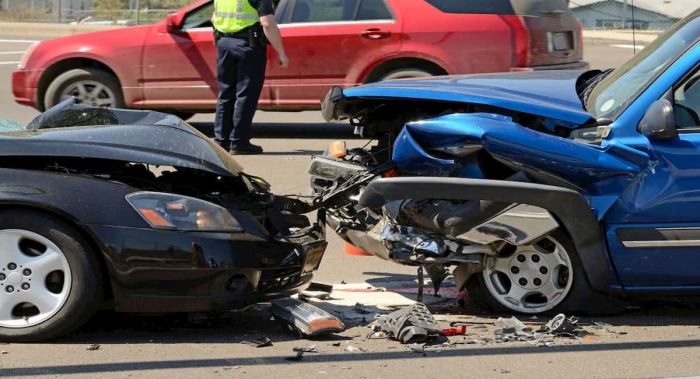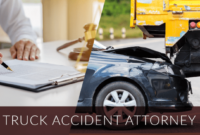Navigating the aftermath of an auto accident in Illinois can be a complex and challenging experience. Understanding the state’s auto accident laws is crucial for protecting your rights and ensuring fair compensation. This comprehensive guide will delve into the intricacies of Illinois auto accident laws, empowering you with the knowledge you need to make informed decisions and pursue justice.
From determining fault and navigating the statute of limitations to understanding no-fault insurance and wrongful death claims, we will explore the essential aspects of Illinois auto accident laws, providing you with a clear roadmap to protect your interests and seek appropriate compensation.
Illinois Fault Laws

Illinois follows a comparative fault system in determining liability for auto accidents. This means that each driver’s degree of fault is assessed, and their compensation and liability are adjusted accordingly.
In Illinois, fault is determined based on the following factors:
The actions of the drivers involved
The condition of the vehicles
The condition of the road
Any other relevant factors
Comparative Fault
Under the comparative fault system, each driver’s fault is expressed as a percentage. The driver who is found to be more than 50% at fault for the accident is barred from recovering damages. However, if the driver is found to be less than 50% at fault, they can recover damages, but their recovery will be reduced by their percentage of fault.
In the event of an auto accident, understanding Illinois auto accident laws is crucial to protect your rights. If you have been involved in a car crash, it is advisable to seek legal counsel from auto accident law firms near me.
These firms specialize in handling personal injury cases and can guide you through the complexities of Illinois auto accident laws, ensuring you receive fair compensation for your injuries and damages.
Example
For example, if Driver A is found to be 70% at fault for an accident and Driver B is found to be 30% at fault, Driver A will not be able to recover any damages from Driver B. However, Driver B will be able to recover 70% of their damages from Driver A.
If you’re involved in an auto accident in Illinois, it’s crucial to understand the state’s specific laws and regulations. However, if you find yourself in Texas, you may want to consider reaching out to the experienced team at Fielding Law Auto Accident Attorneys.
They specialize in handling auto accident cases and can provide invaluable guidance. Nevertheless, it’s equally important to familiarize yourself with Illinois auto accident laws to ensure you protect your rights and navigate the legal process effectively.
Statute of Limitations

In Illinois, the statute of limitations for filing a personal injury claim after an auto accident is two years from the date of the accident.
Illinois auto accident laws are designed to protect the rights of victims. If you have been injured in a car accident, it is important to contact a lawyer to discuss your legal options. Georgia auto law auto accident attorneys can help you get the compensation you deserve.
They can also help you navigate the legal process and ensure that your rights are protected. Illinois auto accident laws are complex, and it is important to have an experienced lawyer on your side.
There are a few exceptions to this statute of limitations. For example, if the person injured in the accident is a minor, the statute of limitations does not begin to run until the minor turns 18 years old. Additionally, if the person injured in the accident is mentally disabled, the statute of limitations does not begin to run until the person is no longer mentally disabled.
Understanding Illinois auto accident laws is crucial to protect your rights after a collision. If you’ve been injured in a car accident, consider seeking legal assistance from auto injury lawyer scholle law car & truck accident attorneys. Their expertise in Illinois auto accident laws can help you navigate the legal process, ensuring you receive fair compensation for your injuries.
Determining When the Statute of Limitations Begins to Run
The statute of limitations begins to run on the date of the accident. However, there are some exceptions to this rule. For example, if the person injured in the accident is not aware of the injuries until a later date, the statute of limitations may not begin to run until the person becomes aware of the injuries.
No-Fault Insurance: Illinois Auto Accident Laws
Illinois has a no-fault auto insurance system, which means that drivers are generally responsible for paying their own medical expenses and other losses, regardless of who is at fault for an accident. However, there are some exceptions to this rule, such as when the other driver is uninsured or underinsured.
Navigating the complexities of Illinois auto accident laws can be daunting. However, seeking guidance from an experienced auto accident law office can provide invaluable support. These legal professionals specialize in handling such cases and can help ensure that your rights are protected and you receive fair compensation for your injuries.
Understanding the intricacies of Illinois auto accident laws is crucial in maximizing your recovery.
The Illinois Personal Injury Protection (PIP) system is a type of no-fault insurance that provides coverage for medical expenses, lost wages, and other expenses incurred as a result of an auto accident. PIP coverage is mandatory in Illinois, and all drivers must carry a minimum of $25,000 in PIP coverage.
Benefits of PIP Coverage, Illinois auto accident laws
PIP coverage can help to pay for medical expenses, lost wages, and other expenses incurred as a result of an auto accident, regardless of who is at fault.
PIP coverage can help to protect drivers from financial hardship in the event of an accident.
PIP coverage can help to speed up the claims process, as drivers do not have to wait for the other driver to be found at fault before they can start receiving benefits.
Limitations of PIP Coverage
PIP coverage has a maximum benefit limit of $25,000.
PIP coverage does not cover all expenses incurred as a result of an auto accident, such as pain and suffering or emotional distress.
PIP coverage is not available to drivers who are injured in accidents involving uninsured or underinsured drivers.
Role of PIP in Determining Fault and Compensation
PIP coverage does not determine fault for an accident. However, it can affect the amount of compensation that a driver is entitled to. If a driver is injured in an accident and has PIP coverage, the driver’s PIP benefits will be deducted from any settlement or judgment that the driver receives from the other driver.
Property Damage Claims

After an auto accident in Illinois, filing a property damage claim is crucial to recover the costs of repairing or replacing your vehicle. Understanding the process, documentation required, and types of compensation available can help you navigate this process effectively.
To initiate a property damage claim, contact your insurance company and report the accident. They will provide you with a claim form and guide you through the necessary steps. Gather evidence such as photos of the damage, a police report, and witness statements to support your claim.
Documentation Required
Photos of the vehicle damage
Police report
Witness statements
Repair estimates or receipts
Steps Involved
Report the accident to your insurance company.
Gather documentation to support your claim.
Submit the claim form and documentation to your insurance company.
Cooperate with the insurance adjuster’s investigation.
Review the settlement offer and negotiate if necessary.
Types of Compensation Available
Property damage claims can cover various expenses, including:
Repair or replacement costs for your vehicle
Loss of use of your vehicle
Towing and storage fees
Diminished value of your vehicle
Wrongful Death Claims
Wrongful death claims in Illinois are civil lawsuits brought by the family members of a person who has died due to the negligence or wrongful act of another person or entity. These claims allow the family to seek compensation for their losses, including financial damages and emotional distress.
To establish a wrongful death claim, the plaintiff must prove the following elements:
The death of the victim was caused by the negligence or wrongful act of the defendant.
The plaintiff is a family member of the victim and has suffered damages as a result of the death.
Damages in Wrongful Death Cases
The damages that can be recovered in a wrongful death case include:
Medical and funeral expenses
Lost income and benefits
Loss of companionship and support
Pain and suffering
Punitive damages (in some cases)
Helpful Answers
What is the statute of limitations for filing an auto accident claim in Illinois?
In Illinois, the statute of limitations for filing a personal injury claim after an auto accident is two years from the date of the accident.
Does Illinois have a no-fault insurance system?
Yes, Illinois has a no-fault insurance system, known as Personal Injury Protection (PIP), which provides coverage for medical expenses and lost wages regardless of who is at fault for the accident.
What types of damages can be recovered in a wrongful death claim in Illinois?
Damages that can be recovered in a wrongful death claim in Illinois include funeral expenses, lost income, loss of companionship, and pain and suffering.




